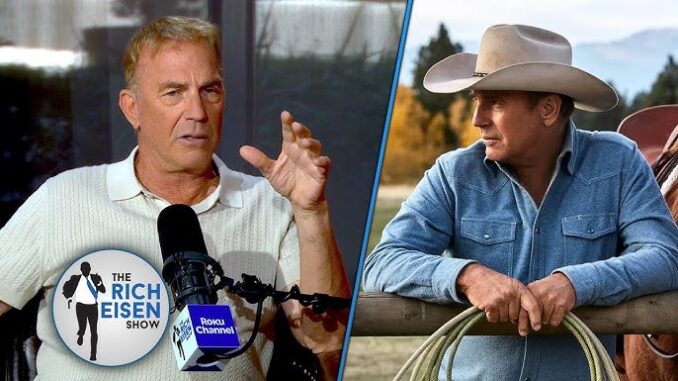
The Last Rodeo: Why Yellowstone Became the Biggest Cultural Phenomenon on American Television
A searing sun beats down on an endless horizon, a vastness interrupted only by the jagged silhouette of the Rocky Mountains and the stoic figure of a man on horseback. This isn’t just a scene; it’s a primal American tableau, a forgotten echo reawakened. When Yellowstone first galloped onto screens, few could have predicted it would become the biggest cultural phenomenon on American television, a runaway locomotive that captured the national imagination. It wasn’t merely a show; it was a mirror, a myth, and a rallying cry, tapping into a confluence of desires and anxieties that had long simmered beneath the surface of the modern American psyche.
At its core, Yellowstone offered an intoxicating escape into a world both familiar and impossibly grand: the American West. In an increasingly urbanized, digitized, and often claustrophobic existence, the sweeping vistas of Montana unfurled like a breath of fresh, untamed air. The show’s cinematography is a character in itself, painting epic canvases of snow-capped peaks, sun-drenched valleys, and raging rivers. This visual feast wasn’t just pretty; it was a siren call to a collective yearning for open spaces, for a connection to the land that feels increasingly lost. It whispered of a time when courage was measured by the strength of your back and the steadiness of your aim, offering a romanticized, yet viscerally real, antidote to the concrete jungle and the digital hum.
But the true heart of the phenomenon pulsed within the Dutton family, a clan as complicated and dangerous as the land they defended. Led by the enigmatic, iron-willed patriarch John Dutton (Kevin Costner, perfectly cast as a weathered icon), the Duttons are not heroes in shining armor. They are anti-heroes, flawed and fierce, often operating outside the law to protect their dynastic ranch, “the largest in the U.S.” Their world is one of moral ambiguity, where “doing what needs to be done” often means blurring the lines between right and wrong, justice and vengeance. This unflinching portrayal of survival by any means necessary resonated deeply. In an age of perceived softness and political correctness, the Duttons offered a stark, unapologetic vision of raw power, unwavering loyalty, and brutal efficiency. Viewers, perhaps weary of sanitized narratives, found a catharsis in the Duttons’ defiant stance against all who threatened their way of life – land developers, Native American claims, the government, and even their own internal demons.
Beyond the family drama, Yellowstone struck a nerve by tapping into a profound cultural tension: the clash between tradition and progress, between rural values and urban ideologies. The show fearlessly wades into the murky waters of contemporary American identity, exploring themes of land ownership, environmentalism, Native American rights, capitalism, and the erosion of a certain kind of American rugged individualism. It gave voice to a segment of America often overlooked or misrepresented by mainstream media – the rural, the conservative, those who feel their values are under siege. For these viewers, the Duttons weren’t just fictional characters; they were champions, embodying a fierce independence and a refusal to back down that mirrored their own convictions. The show became a cultural touchstone, igniting conversations about everything from property rights to the future of the American dream, proving that a well-told story could be a powerful cultural barometer.
Finally, the genius of Yellowstone lies in the unique vision of its creator, Taylor Sheridan. Sheridan, a Texan with a deep understanding of the West, infused the series with an authenticity that bled from every frame. His dialogue is sharp, poetic, and often profane, spoken by characters who feel lived-in and real. His narratives are intricate, blending the sprawling grandeur of a classic Western with the addictive melodrama of a prime-time soap opera. He crafts a world where loyalty is paramount, consequences are brutal, and the line between good and evil is perpetually blurred. This visceral storytelling, combined with cinematic production values that rival feature films, elevated Yellowstone beyond mere television, creating an immersive experience that commanded attention and fostered fervent devotion.
Yellowstone didn’t just become a hit show; it became a cultural wildfire, spreading across demographic lines and igniting conversations that stretched far beyond plot points. It offered a mythic battleground where the past wrestled with the present, where flawed heroes fought for an endangered way of life, and where the stark beauty of the American frontier still held sway. In a fragmented nation, Yellowstone provided a shared experience, a common campfire around which millions gathered, perhaps not to agree on everything, but to witness a story that felt undeniably, powerfully, American. It proved that sometimes, to understand where we’re going, we first need to look back at the untamed wilderness of where we came from.
